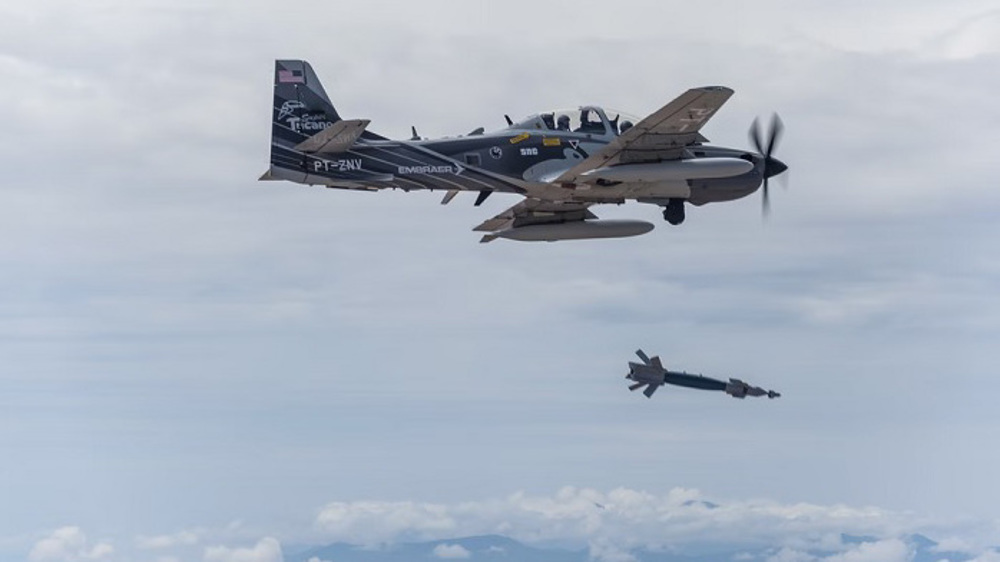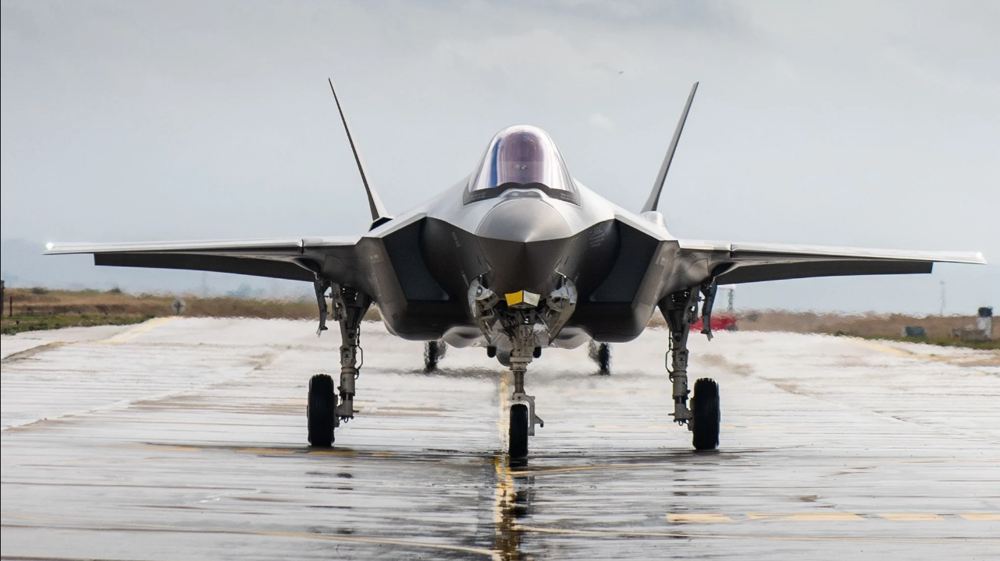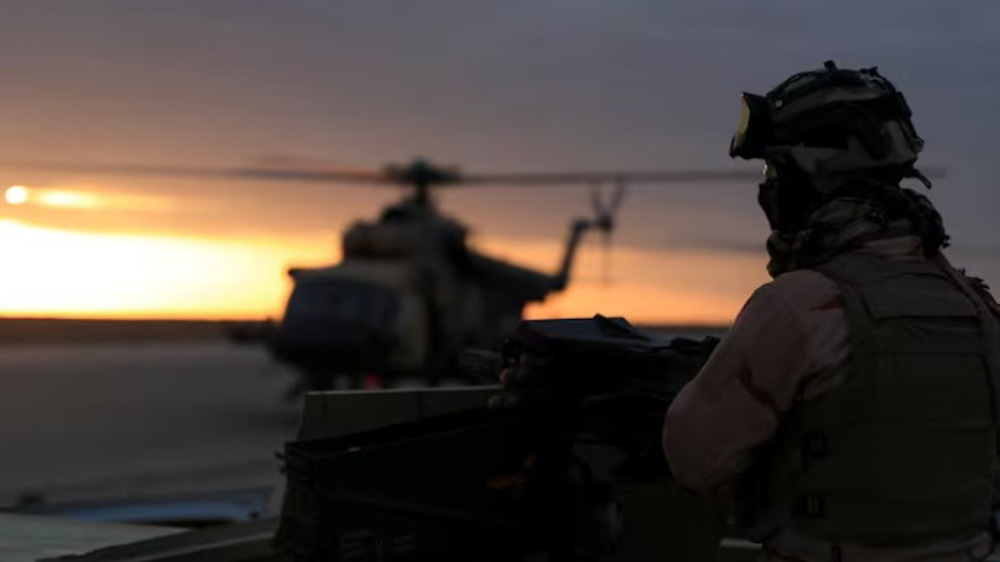US played secret role in 2017 Nigeria IDP bombing that killed over 160: Report
The US government played a secret role in a military operation in Nigeria in 2017 that killed hundreds of civilians, a damning new report has revealed, painting a harrowing picture of US Africa Command's conduct in the region.
According to a Freedom of Information Act report obtained by The Intercept, US intelligence was secretly involved in the disastrous bombing of an internally displaced persons (IDP) camp in Nigeria that led to the killing of more than 160 civilians, most of them children.
The bombardment was carried out in January 2017 on the camp located in Nigeria’s city of Rann, near the Cameroonian and Chadian borders, which housed 43,000 people and was controlled by the Nigerian Arm.
It led to the destruction of at least 35 structures, including shelters for war victims, besides killing nine aid workers and critically wounding over 120 people.
According to survivors of the attack, a surveillance plane flew over the camp, before another plane bombed the area where the population drew water from a well. The jet then circled and dropped another bomb on the refugees’ tents, decimating the whole camp.
The attack, branded as a ‘US-Nigeria operation’, was carried out under the guise of a counterinsurgency campaign against the armed group Boko Haram.
In a statement one day after the attack, the Nigerian Air Force (NAF) regretted carrying out the airstrike and explained that “the site was not reflected on the operational map as a humanitarian base.”
“Hence, it appeared as a place that could equally be used for enemy activities,” said Major Gen. John Enenche, Nigeria’s director of defense information.
Nigerian human rights organizations and activists questioned how the military could be unaware of the camp and accused the NAF of a cover-up as the refugees’ tents were completely visible from the air, according to satellite imagery.
A year after the offensive, human rights lawyer Femi Falana called on National Human Rights Commission (NHRC) to compensate victims of the airstrike.
In The Intercept report, it is revealed that the US government secretly provided intelligence or other support such as background information to the Nigerian military before bombing the area.
“You will gather and preserve any background information that is relevant to a complete understanding of the US-Nigerian operations such as this strike,” reads the document.
According to the document obtained by The Intercept, just days after the attack, the US Africa Command (AFRICOM) secretly commissioned Brigadier General Frank J. Stokes, deputy director of the Strategy, Engagement and Programs Directorate, to conduct an “investigation to determine the facts and circumstances of a kinetic airstrike by Nigerian military forces in and around Rann, Nigeria”. However, the findings of the investigation were never published.
“Civilian victims, and the American and Nigerian publics, deserve answers about any US role in this devastating strike,” said Annie Shiel, senior adviser for the United States at the Center for Civilians in Conflict (CIVIC).
“What exactly was the United States’s involvement? What were the findings of the investigation — including findings of wrongdoing — and what kind of responsibility does the U.S. acknowledge for the grave harm caused?”
“As the US continues to deepen its security assistance to Nigeria… we also need far more transparency about what steps have been taken to prevent and respond to civilian harm using US assistance,” said Shiel, adding that Congress should demand clarifications from military authorities.
According to a senior member of the United National Anti-war Movement Judith Bello, the American authorities, who called for airstrikes, “do not care” about the civilians’ deaths, “because the idea of having ongoing wars is what they exactly want”.
Stokes’ mandate included an inquiry into how the US shares information with Nigeria’s military and “after action reporting procedures when shared information is used in a strike (e.g., battle damage assessment reports)".
However, he was impeded from obtaining any information “on any person or organization which took part in this strike”.
“You do not have any authority to compel potentially incriminating evidence from any Service member, a civilian employee of the US, contractor personnel supporting US operations, or foreign military personnel,” reads his mandate.
AFRICOM “was not involved” in the bombing of the camp, spokesman Kelly Cahalan said, adding that secret operations can be carried out by the CIA or Special Operations forces under their own chains of command.
According to a special investigative project for Nigeria’s The Cable, the regional military commander, Gen. Lucky Irabor (now Nigeria’s defense chief), “admitted that he ordered the attacks in Rann, based on intelligence received.”
The report cited a “senior military source” saying that the intelligence information was received from “one of the powerful countries in the west.”
It is worth noting that US surveillance and intelligence-gathering equipment such as Predator drones, Global Hawks, and turboprop planes have regularly been employed over Nigeria as well as the Chadian border.
In 2017, The Intercept in another damning report revealed the existence of a ‘drone base’ and ‘torture center’ used by US contractors in Salak, Cameroon, in the northern border region between Nigeria and Chad.
The US drone program was originally instituted by George W. Bush to assist in his so-called ‘War on Terror’. His successors significantly increased the number of drone strikes in faraway countries.
Since the program’s inception, US officials have claimed that the strikes were used against terrorists, with fewer civilian casualties. But numerous reports over the past years suggest an overwhelming majority of deaths have been civilians in these strikes.
VIDEO | Trump fighting allies on Greenland
Iran FM: Selective respect for deals now haunting Europe
Arab rights group urges UK to sanction Netanyahu over 'incitement to genocide' in Gaza
‘Political, non-constructive’: Iran slams UNHRC special session on recent riots
Forced evacuations in South Gaza as Israeli military expands control over land
Iran reports steep rise in exports after forex policy shift
Iranian bank loans up 47.2% y/y in Apr-Dec
Macron slams Trump’s ‘bullying’ as US threatens tariffs, pushes Greenland grab










 This makes it easy to access the Press TV website
This makes it easy to access the Press TV website